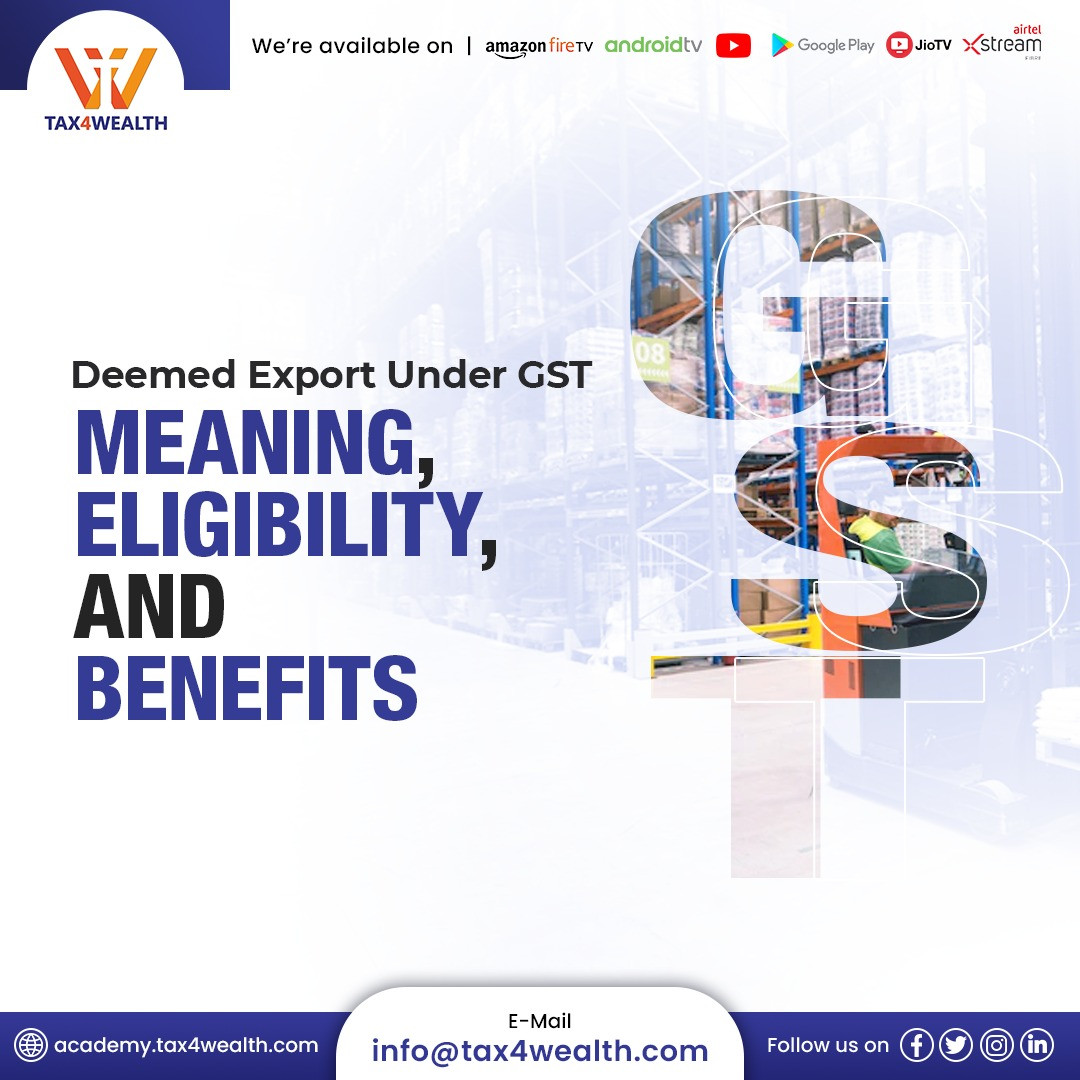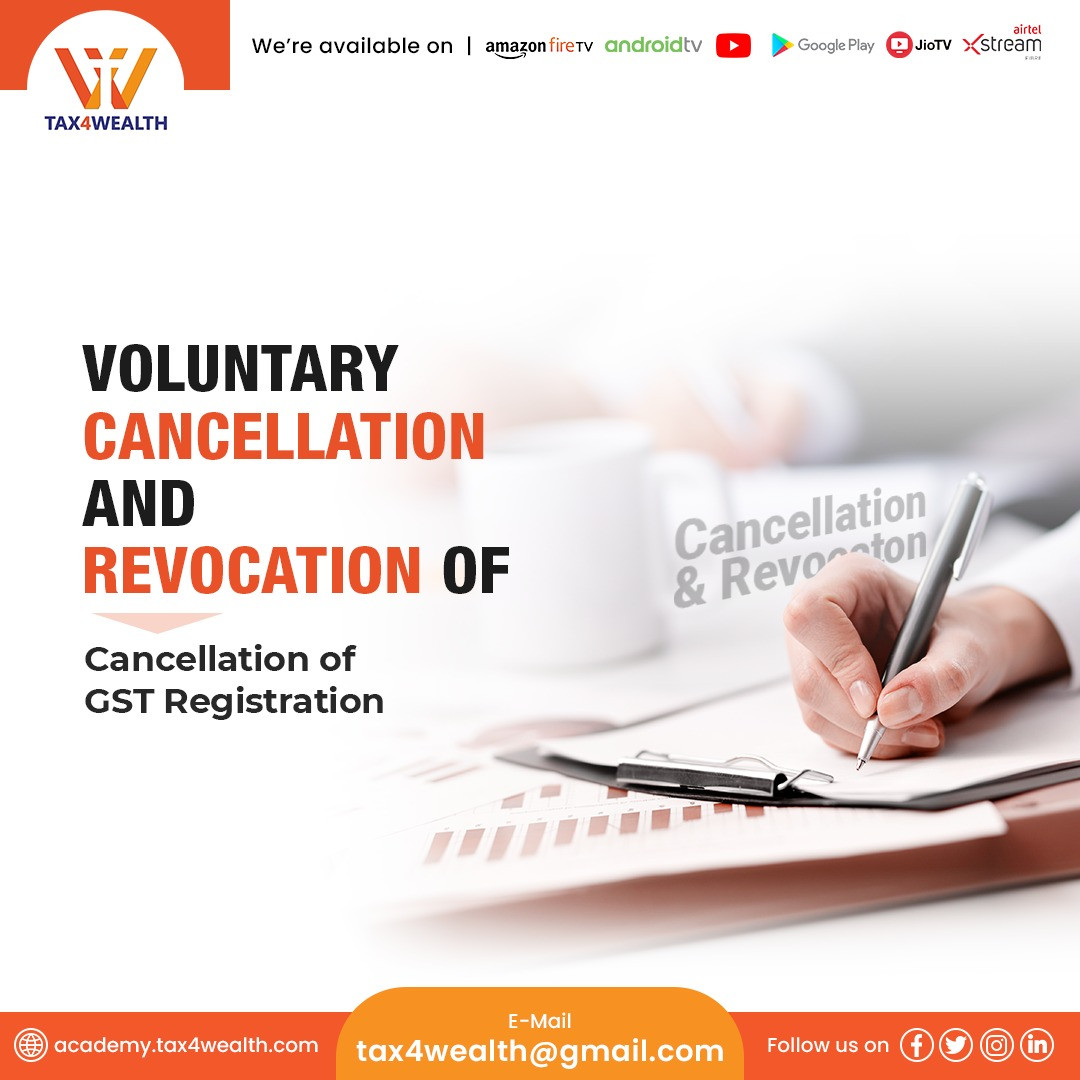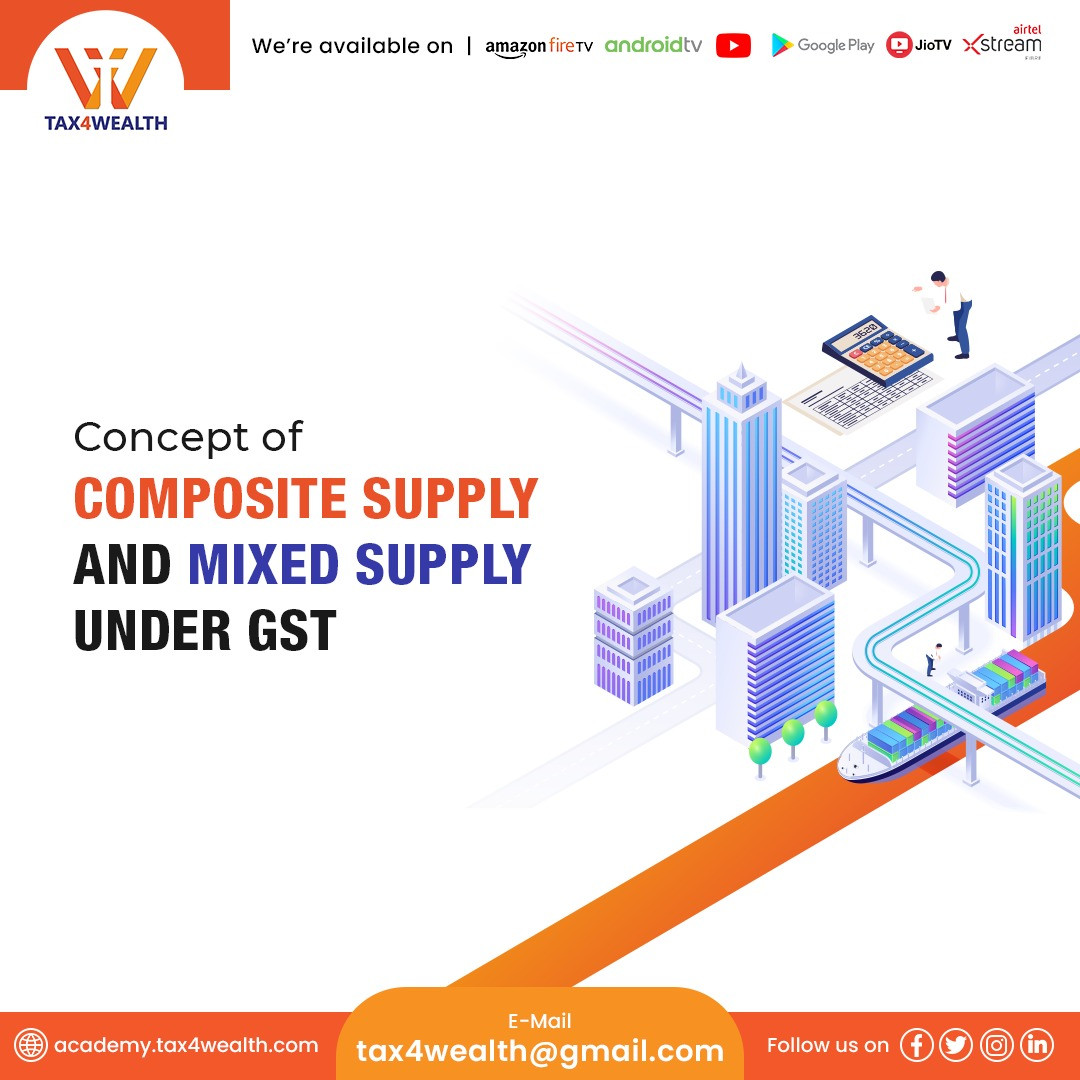
Deemed Export Under GST- Meaning, Eligibility, and Benefits
Deemed exports under GST scheme aim to extend the benefits or incentives enjoyed by exporters to suppliers who either directly contribute to exports (such as a supplier who supplies his goods to an export-oriented unit) or directly contribute to specific infrastructure projects (such as suppliers who supply their goods to an export-oriented unit). By offering duty-free inputs and incentives or exemptions on taxes or levies paid in India, the strategy seeks to strengthen India’s domestic industry versus imports of goods.
Deemed Exports - Meaning:
Deemed exports are defined as commodities (and not services) created in India and carried locally, meaning they do not leave India, according to the export and import (EXIM) policy (1997-2022). Deemed expiry signifies that the provider may be paid for this transaction in convertible foreign currency or Indian rupees.
Differences between export, deemed export, and merchant export:
1. Export: When items are manufactured locally and shipped to another country, the trading transaction is referred to as an export.
2. Deemed Export: Items marked as deemed export are prohibited from leaving the country.
For instance, the first half of a transaction is categorized as presumed export whereas the second transaction is regarded as an export when a manufacturer from Kerala delivers items to an export-oriented unit in Maharashtra, which then ships the product to its client in the UAE.
3. Merchant Export: is the practice of acquiring items locally and exporting them under one's brand. A merchant exporter purchases the products locally before exporting them internationally under his name.
To Learn many more in GST Click here👉 GST Course with Practical Training and get 100% Job Placement.
The requirements for being eligible for Deemed Exports:
The requirements listed below must be met for any transaction to qualify as a "deemed export" under FTP.
- Only products can be considered exports. Services are not eligible.
- Products must be manufactured in India.
- The products shouldn't be shipped outside of India.
- By Section 147 of the Central Products and Services Tax Act of 2017, the Central Government must declare the goods to be deemed exports (CGST Act).
- Any convertible foreign currency, including Indian rupees, may be used for the transaction.
- A Letter of Undertaking (LUT) or bond cannot be used to process the products that were provided as Deemed Exports.
- At the time of supply, the GST assessed on the items must be paid. This tax can be recovered back in full.
In addition to these requirements, the following are considered to be exported when products are supplied:
- A transaction qualifies as a presumed export if the items are given to a party that possesses an Advance Authorization (AA)/Advance License.
- If a GST-registered individual sells goods to an Export Oriented Unit (EOU), Electronic Hardware Technology Park Unit (EHTP), Software Technology Park Unit (STP), or Bio-Technology Park Unit (BTP).
- Deals made in violation of a duty-free import authorization (DFIA).
- A transaction is considered to be an export if capital goods are sent to a receiver who is the owner of an Export Promotion Capital Goods Authorization (EPCG program).
- Products that are provided for nuclear power projects as well as UN programs. Projects financed by bilateral or international organizations receive supplies.
Also, read 👉https://www.livehindustan.com/ncr/ghaziabad/story-online-training-program-for-accounting-7242462.html
Advantages of the Deemed Exports Program:
The following advantages apply to products that are eligible to be deemed exports:
- The supplier is given a special imprest license, an advance license for intermediate goods, a deemed export license, and a DFRC for intermediate supplies.
- Terminal excise duties on deemed exports are waived or completely refunded.
- A Special Import License may be obtained by manufacturers for 6% of the FOB (Freight on Board) value.
- The provider can benefit from the Deemed Export Draw programs, Refund of terminal excise duty, and Special Imprest License if the items were delivered under an Advance Release Order or Back-to-Back Letter of Credit.
- Except for the Special Imprest License and the Deemed Export Drawback Scheme, the provider may take advantage of all the aforementioned benefits when providing products to a recipient who has an EPCG license. This is true when supplies are given to a holder of a zero-duty EPCG license.
Deemed Export for GST:
Deemed exports under GST moved outside of India, are not subject to the GST. As a result, there is no GST rate applied to considered exports of products. GST is, however, charged on the products that meet the criteria for being deemed exports because deemed exports are not zero-rated. The provider is eligible for a complete tax refund.
Under Central Government Notification No. 48/2017-Central Tax, the central government has made a broad range of transactions that may qualify as deemed exports known. The provider or the receiver must pay tax on the supply of presumed exports because these transactions are not zero-rated. However, under the GST, these taxes are also eligible for a return as a presumed export.
For more updates, Visit us at: https://academy.tax4wealth.com/blog/
Related News
No comments yet, Be the first to comment.













